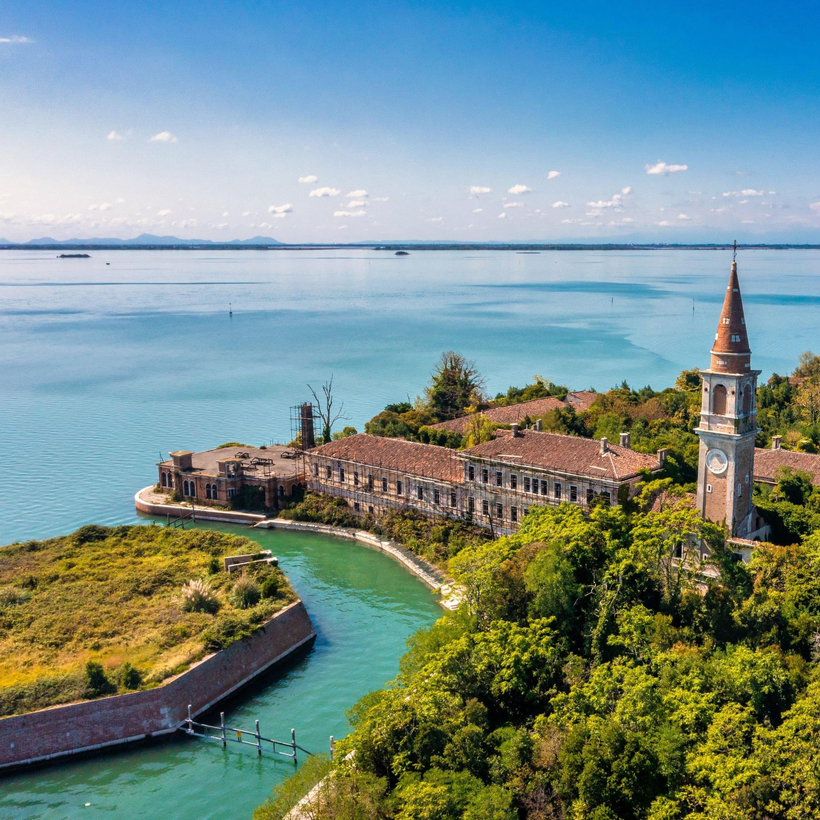A small island near Venice is to be converted into an oasis for residents seeking to escape the millions of tourists who descend on the city each year.
Part of Poveglia, which was once a plague pit and eventually abandoned in the 1990s, will be taken over next month by an activist group, Poveglia per Tutti (Poveglia for Everyone), and turned into an urban park for the Venetians.
Venice, known to many as La Serenissima meaning “the most serene”, is visited by about 30 million tourists a year. An almost $6 access charge introduced last year has done little to deter visitors, although city officials say it helps them to monitor the flows of sightseers.
Cruise ships were banned in 2021 and must now dock on the mainland at Marghera or at Ravenna, almost 90 miles to the south, or at Trieste, almost 100 miles across the Adriatic. Visitors are then bussed to the city.

The move cut educed air pollution in Venice but failed to reduce the number of visitors on cruise ships. High housing costs, fueled by competition from Airbnb, and a lack of services have driven many locals to the mainland.
The exodus, coupled with deaths in an ageing population, has caused the city’s population to shrink by about 10,000 over the past ten years. In 2022 it sank below 50,0000 and now stands at 48,342.
The activist group won a six-year lease for the island, beating competitors, including Luigi Brugnaro, the mayor of Venice, who wanted to build on the land. It challenged Venetians to put their hands in their pockets and preserve the island from development with the slogan “€99 for 99 years” (about $115). More than 4,600 people contributed.
Patrizia Veclani, one of the founders of Poveglia for Everyone, said: “We woke up with a nest egg of €460,000 [$536,000] and a community full of high-level professional skills.”

Her group will pay little more than $1,165 a year for the renewable lease.
The University of Verona has joined forces with the group and will monitor the project’s environmental and social impact. The university said the aim was to regenerate the northern part of the island, “transforming it into a lagoon urban park open to citizens and respectful of the ecosystem and the landscape elements that characterize the lagoon”.
Veclani said the university’s involvement played an important role in convincing the Italian national land agency, which operates under the Ministry of Economy, to award them the lease.
She told The Times: “Having an academic analysis of the impact is very important for us. It means we can be a model for others and there are many more like us throughout Italy.”
The activists face many challenges. There is no electricity or water on the island and, for the moment, no satisfactory pier providing access for boats. And the kitchen garden, once famous for its variety of peaches, has been allowed to run wild.

“Nature has reclaimed it,” Veclani said. “But with the advice of botanists we are considering what appropriate plants can be reinstated. We are lucky to be able to call on many experts.”
“The sharing of knowledge has been wonderful. What’s important is that it is returning to the city, rather than becoming the umpteenth luxury hotel.”
Brugnaro, who is under investigation for corruption, which he denies, wished the victors well. He said: “I am on holiday but I can tell you that I am very happy with this solution.”
Philip Willan is a British journalist based in Rome

